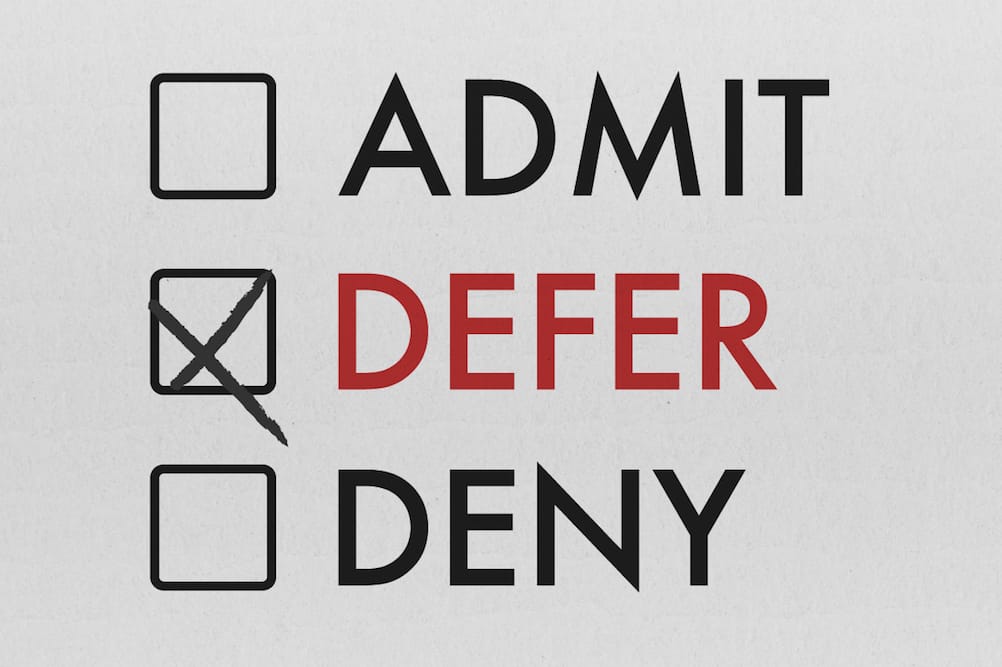
verb (used with object), de·ferred, de·fer·ring.
- to put off (action, consideration, etc.) to a future time: The decision has been deferred by the board until next week.
- to exempt temporarily from induction into military service.
verb (used without object), de·ferred, de·fer·ring.
- to put off action; delay.
verb (used without object), de·ferred, de·fer·ring.
- to yield respectfully in judgment or opinion (usually followed by to): We all defer to him in these matters.
verb (used with object), de·ferred, de·fer·ring.
- to submit for decision; refer: We defer questions of this kind to the president.
verb -fers, -ferring or -ferred
- (tr) to delay or cause to be delayed until a future time; postpone
verb -fers, -ferring or -ferred
- (intr foll by to) to yield (to) or comply (with) the wishes or judgments of anotherI defer to your superior knowledge
“to delay,” late 14c., differren, deferren, from Old French differer (14c.), from Latin differre “carry apart, scatter, disperse;” also “be different, differ;” also “defer, put off, postpone,” (see differ). Etymologically identical with differ; the spelling and pronunciation differentiated from 15c., perhaps partly by association of this word with delay.
“yield,” mid-15c., from Middle French déférer (14c.) “to yield, comply,” from Latin deferre “carry away, transfer, grant,” from de- “down, away” (see de-) + ferre “carry” (see infer). Main modern sense is from meaning “refer (a matter) to someone,” which also was in Latin.
 Liberal Dictionary English Dictionary
Liberal Dictionary English Dictionary




